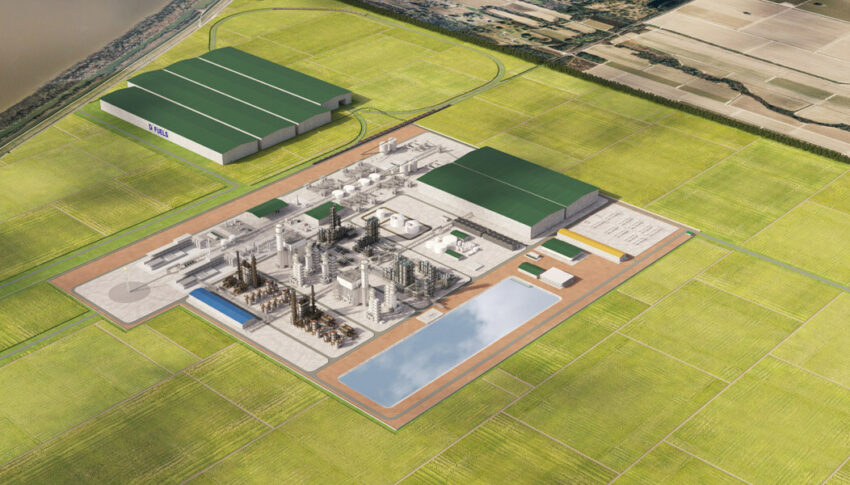DG Fuels is to build its first sustainable aviation fuel (SAF) plant using Fischer Tropsch CANS technology co-developed by Johnson Matthey and bp. The plant, in St. James Parish, Louisiana, would be the largest deployment of FT CANS to date – seven times larger than any previously announced project using this technology.
The proposed $4 billion DG Fuels plant is planned to produce 600,000 metric tons of SAF per year when fully operational and would be the largest announced SAF production plant using a non-HEFA route. DG Fuels is planning 10 more SAF production plants across the United States. These would be modeled on the Louisiana plant with Johnson Matthey and bp as the partners of choice for these facilities.
The fuel at the Louisiana plant is expected to be produced from waste biomass. DG Fuels is projected to purchase around $120 million of sugar cane waste annually, a third of which is planned to be purchased from St. James Parish farmers. JM and bp’s FT CANS technology converts the synthesis gas derived from this biomass to synthetic crude, which is then further processed to produce the synthetic kerosene that is then blended with conventional jet fuel to produce SAF.
Current international certification for this SAF requires a blend of up to 50% with fossil kerosene to create “drop-in SAF”. Based on a typical widebody aircraft fuel consumption rate traveling the distance from London to New York, the plant’s planned SAF production capacity, after blending, is equivalent to the fuel required for over 30,000 transatlantic flights annually, equivalent to more than 3% of annual traffic flying on that route currently.
The plant is expected to start production by 2028.
DG Fuels has already secured offtake agreements with major airlines, including multi-year deals with both Air France-KLM and Delta Air Lines. DG Fuels also has a strategic partnership with Airbus to help make SAF available at scale around the world.
First published by FINN: www.wearefinn.com
Apr 10, 2024 – 12:30 pm



